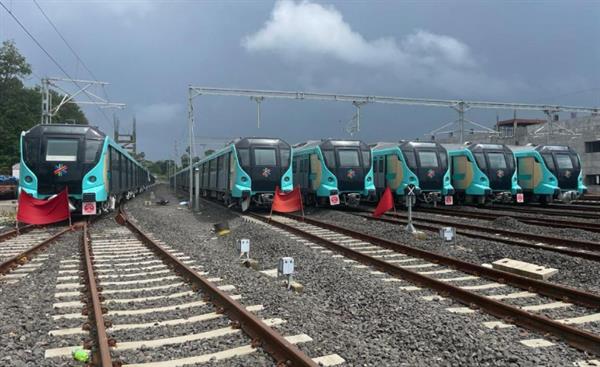Mumbai underground metro line may launch its first train in July.
Explore the latest developments in Mumbai's underground metro project, including the imminent opening of its initial phase from SEEPZ to Bandra Kurla Complex.

J Kumar Infraprojects, the company responsible for constructing the underground metro rail network, known as Metro-3 and the Aqua Line, in India's financial hub, has announced that the initial stretch of the project, spanning from SEEPZ to Bandra Kurla Complex, is slated to open to the public by July of this year. Kamal Gupta, Managing Director, conveyed to CNBC-TV18 that MMRC (Mumbai Metro Rail Corporation) intends to commence operations in July or August, as the project nears completion, pending final approvals such as the no-objection certificate, RDSO approvals, and the chief railway commissioner's nod. Gupta anticipates this approval process to conclude within the next one and a half months.
The second phase of the underground metro line is expected to be finalized by November this year, Gupta further revealed.
Here are some notable details about Mumbai's inaugural underground metro line:
Total Distance: Covering 33.5 kilometers, the route spans from SEEPZ to Colaba, linking prominent business districts including Nariman Point, Cuffe Parade, Lower Parel, and Bandra Kurla Complex.
Daily Ridership: It is projected that 1.7 million passengers will utilize the underground metro on a daily basis.
Environmental Impact: Ashwini Bhide, additional municipal commissioner and managing director of Mumbai Metro Rail Corporation, mentioned in a recent interview that once Metro-3 commences operations, it is anticipated to curtail CO2 emissions by 2.61 lakh tonnes annually.
Project Cost: The total expenditure for constructing the underground rail initiative, Metro-3, amounted to ₹37,276 crore, with half of the funding sourced from a loan from the Japan International Corporation Agency (JICA). This figure represents an approximate ₹10,000 crore escalation from the project's initial estimation.